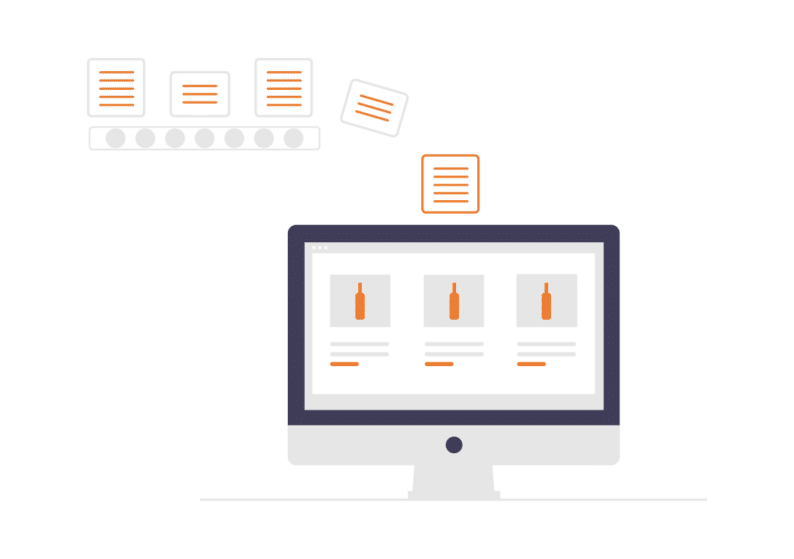Keeping track of wine inventory is the most fundamental of requirements for a wine business yet it’s a job that’s complicated by the idiosyncrasies of the market: the general lack of SKUs in fine wine; non-physical stock; partial shipping of purchase orders; wines stored on behalf for clients – to name a few typical realities.
Before you know it, poor data mastering results in mistakes that cost money and customer loyalty; absorbs an enormous amount of staff time due to needing to resort to manual workarounds; and makes it harder to determine product-level and product category margins and profitability..
Mastering wine inventory is the basis for running a business more efficiently. It will provide the precondition for growth and customer success (a term increasingly used to describe the sum of what you do that results in a happy customer).
The mastering process
Data mastering refers to where you record and maintain information. In regards to inventory management, your master record is the one that is generated from a purchase order and is updated via a sales order, tracked through its movements, reconciled whenever it lands into a storage location, moved to a client account, and so on.
The system that masters your inventory will therefore also comprise workflow management that accurately records what your inventory is and tracks where it is. The data mastering process can be explicitly initiated by a user or automatically initiated by a system.
Data mastering is sometimes also used to describe the process of linking an unmastered data source with another master data record. In the case of the wine market, that’s pretty important too.
Your business management system that’s responsible for stock management, shipping and movements, purchase and sales orders should master your inventory.
Data, discrepancies and digital
The 3 ‘D’s are the basis of a successful software migration, efficient processes and reliable reporting:
Data accuracy
Discrepancy reporting
Setting up digital sales and marketing channels
Data accuracy
Data accuracy is massively improved by having a target referential database of product data, to which incoming product data is matched. Wine Owners has built up a large information database of over 400,000 wine vintages and over 30,000 wine name references. In the case of the Wine Hub, the industry-specific wine business management platform, Liv-ex’s LWIN database is the referential database master to which our information database has been mapped.
Once product data has been analyzed, a data quality report (DQR) has been produced, the data is loaded and matched to LWIN or the referential database and the incoming records are standardized. Historical data encompassing purchase orders and sales orders are processed in the same way. This results in consistent history that can be analyzed for targeting offers and other purposes.
Discrepancy reporting
The warehouse(s)/ storage where stock is held will master the physical cases/ bottles within their control. The physical stock in the warehouse should nevertheless be reconciled against the master of all your inventory, and discrepancy reporting will highlight variation between the purchase order or shipping advice and what actually arrived, or errors in wine descriptions when wine was inventoried upon landing.
Warehouse reconciliation and the reporting of discrepancies, whether initiated by a user or automatically by the system, makes sure that differences are resolved early on and minimizes the potential for error.
Digital sales and marketing channels
Mastered inventory on your business management system connected to information and rich content that helps you to sell wine, and provides the basis for a low-maintenance e-commerce set-up that’s a seamless customer channel connected to your business system.
Accurate wine descriptions, with consistent definitions (such as country, region, sub region, type, grape variety, designation etc.) facilitate a good search or browsing experience. Pre-loaded information such as reviews, scores, drinking dates or other non-standard categorisations reduces the administrative overhead of constantly keying in content.
Importantly, mastering all that content in a single system serves the needs of all sales and marketing channels you choose to connect with, and ensures that your stock position is up to date at all times, reducing any risk of overselling.
Success and data mastering
The 3 ‘D’s are preconditions for successful adoption of new technology that underpins business success. When we listen to customer stories of where things have gone wrong previously, it all started with data issues.
Yet the combination of a clear approach to data mastering, maintained through effective workflow management, linked with a referential database ‘master’, ensures historical data issues are sorted out up-front and maintained throughout the life of a system.
It’s in this context that success is less about the strategy and more about the implementation.
